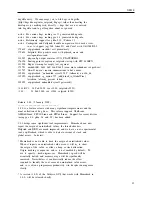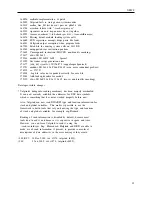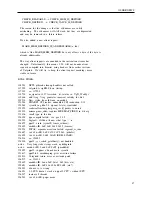
OLDER NEWS
some people will find them useful, and because exposure to a wider
user group provides tool authors with more end-user feedback.
These
tools have a "exp-" prefix attached to their names to indicate their
experimental nature.
Currently there are two experimental tools:
* exp-Omega: an instantaneous leak detector.
See
exp-omega/docs/omega_introduction.txt.
* exp-DRD: a data race detector based on the happens-before
relation.
See exp-drd/docs/README.txt.
- Scalability improvements for very large programs, particularly those
which have a million or more malloc’d blocks in use at once.
These
improvements mostly affect Memcheck.
Memcheck is also up to 10%
faster for all programs, with x86-linux seeing the largest
improvement.
- Works well on the latest Linux distros.
Has been tested on Fedora
Core 8 (x86, amd64, ppc32, ppc64) and openSUSE 10.3.
glibc 2.6 and
2.7 are supported.
gcc-4.3 (in its current pre-release state) is
supported.
At the same time, 3.3.0 retains support for older
distros.
- The documentation has been modestly reorganised with the aim of
making it easier to find information on common-usage scenarios.
Some advanced material has been moved into a new chapter in the main
manual, so as to unclutter the main flow, and other tidying up has
been done.
- There is experimental support for AIX 5.3, both 32-bit and 64-bit
processes.
You need to be running a 64-bit kernel to use Valgrind
on a 64-bit executable.
- There have been some changes to command line options, which may
affect you:
* --log-file-exactly and
--log-file-qualifier options have been removed.
To make up for this --log-file option has been made more powerful.
It now accepts a %p format specifier, which is replaced with the
process ID, and a %q{FOO} format specifier, which is replaced with
the contents of the environment variable FOO.
* --child-silent-after-fork=yes|no [no]
Causes Valgrind to not show any debugging or logging output for
the child process resulting from a fork() call.
This can make the
output less confusing (although more misleading) when dealing with
processes that create children.
* --cachegrind-out-file, --callgrind-out-file and --massif-out-file
These control the names of the output files produced by
38
















































